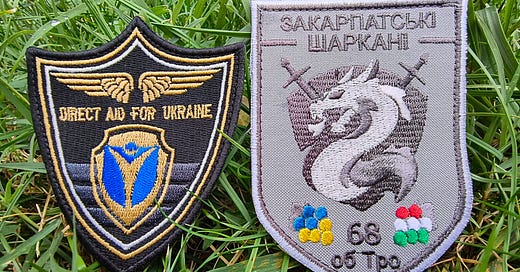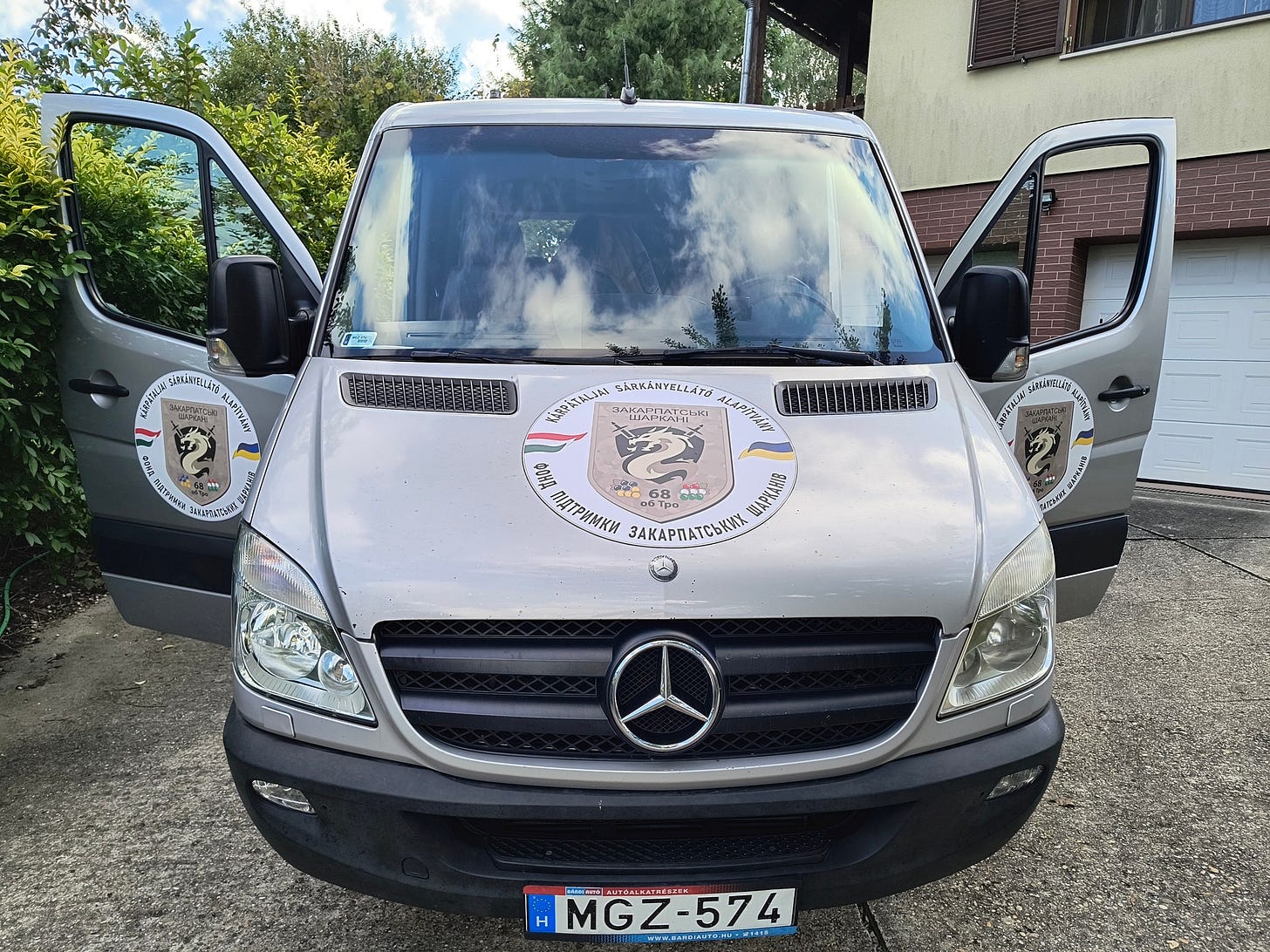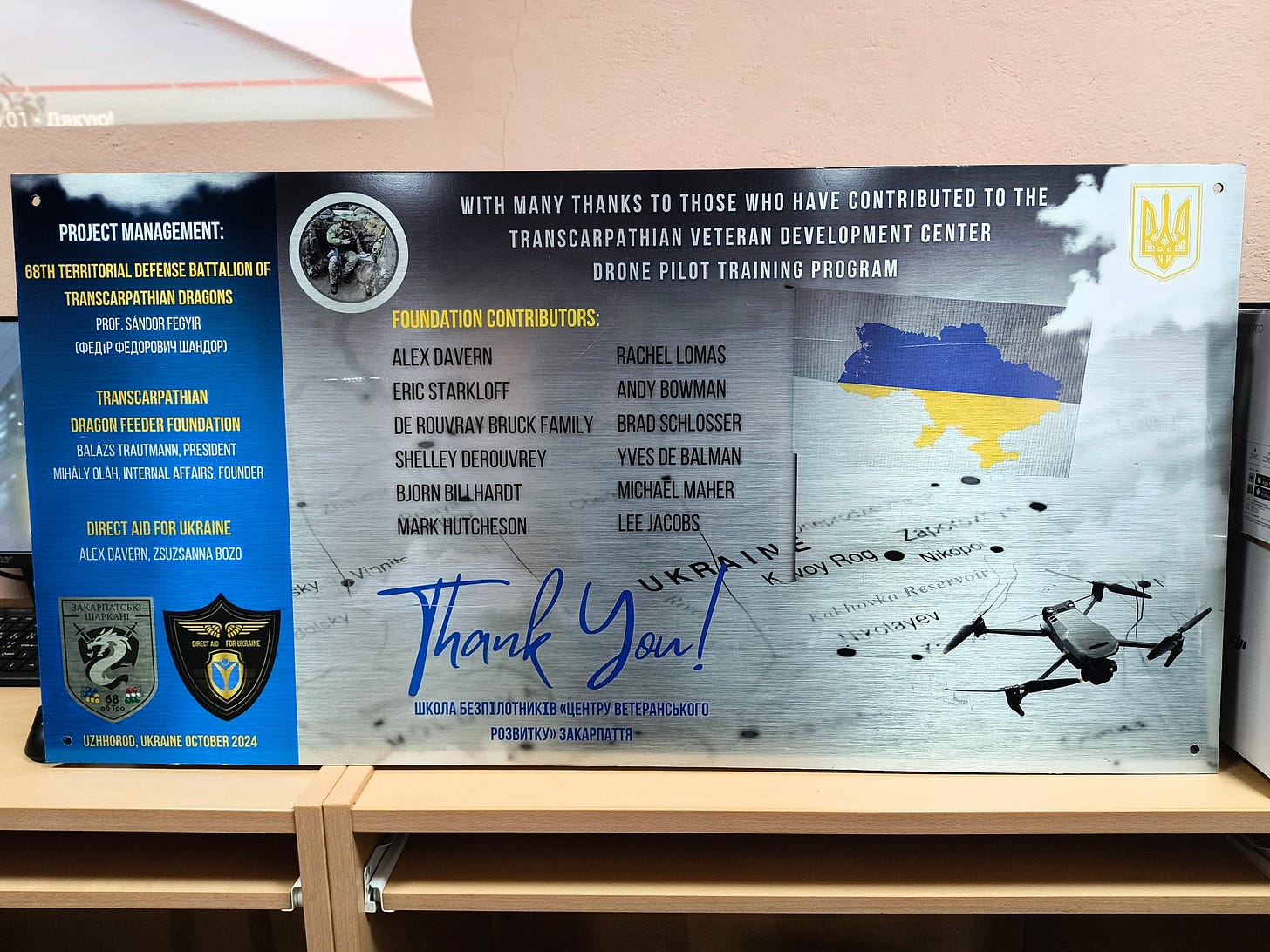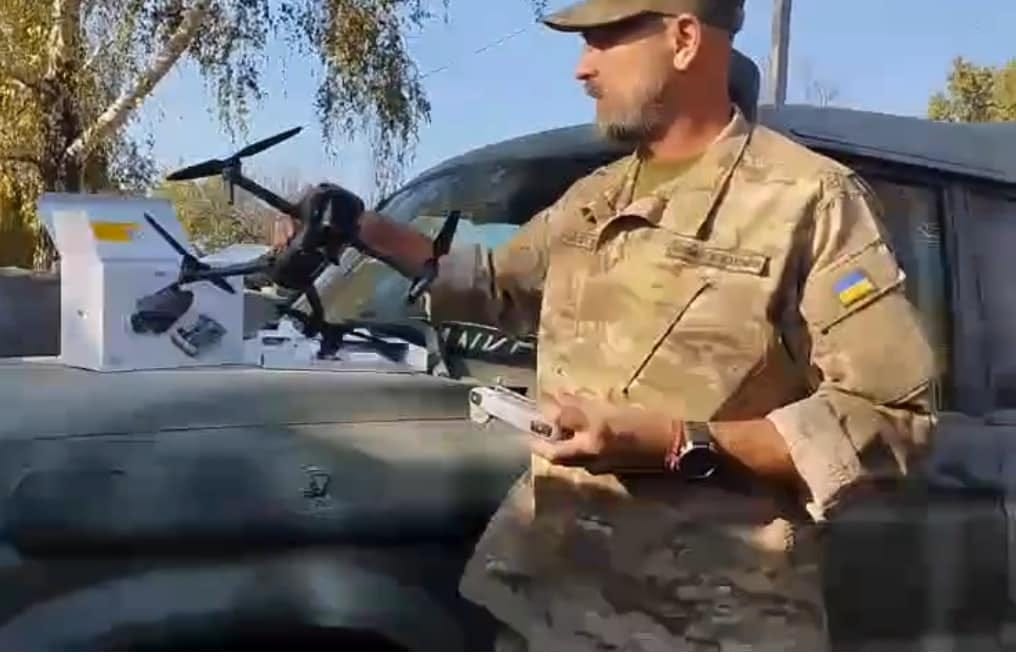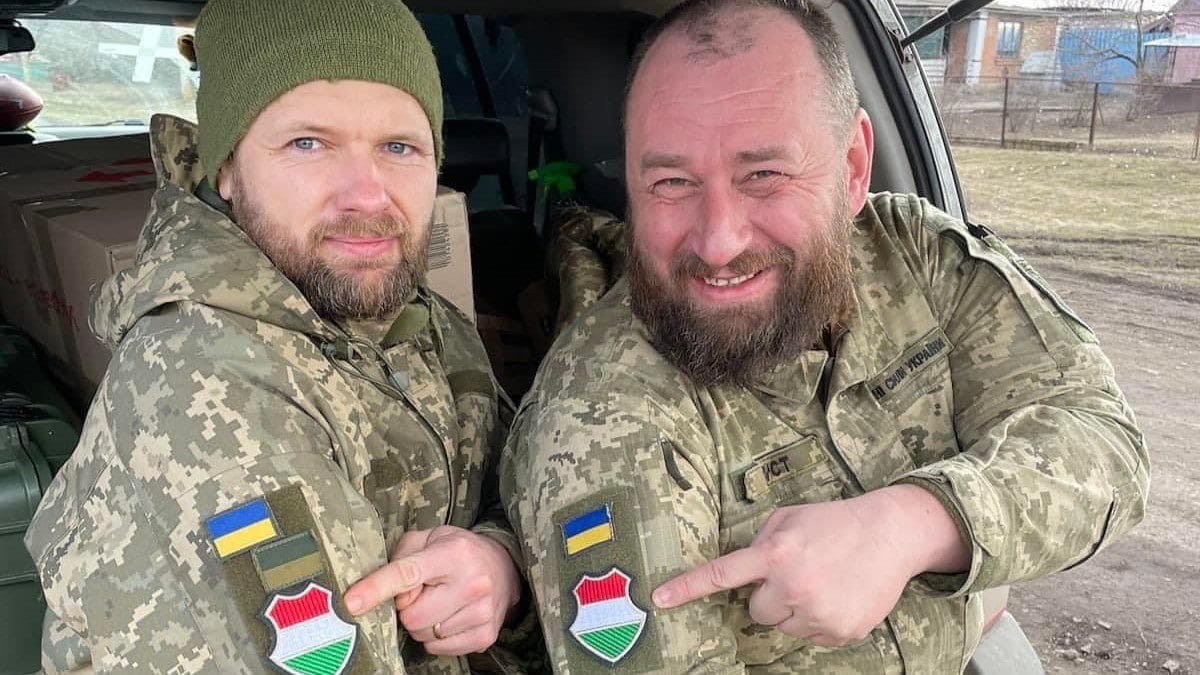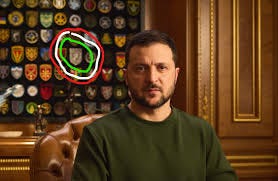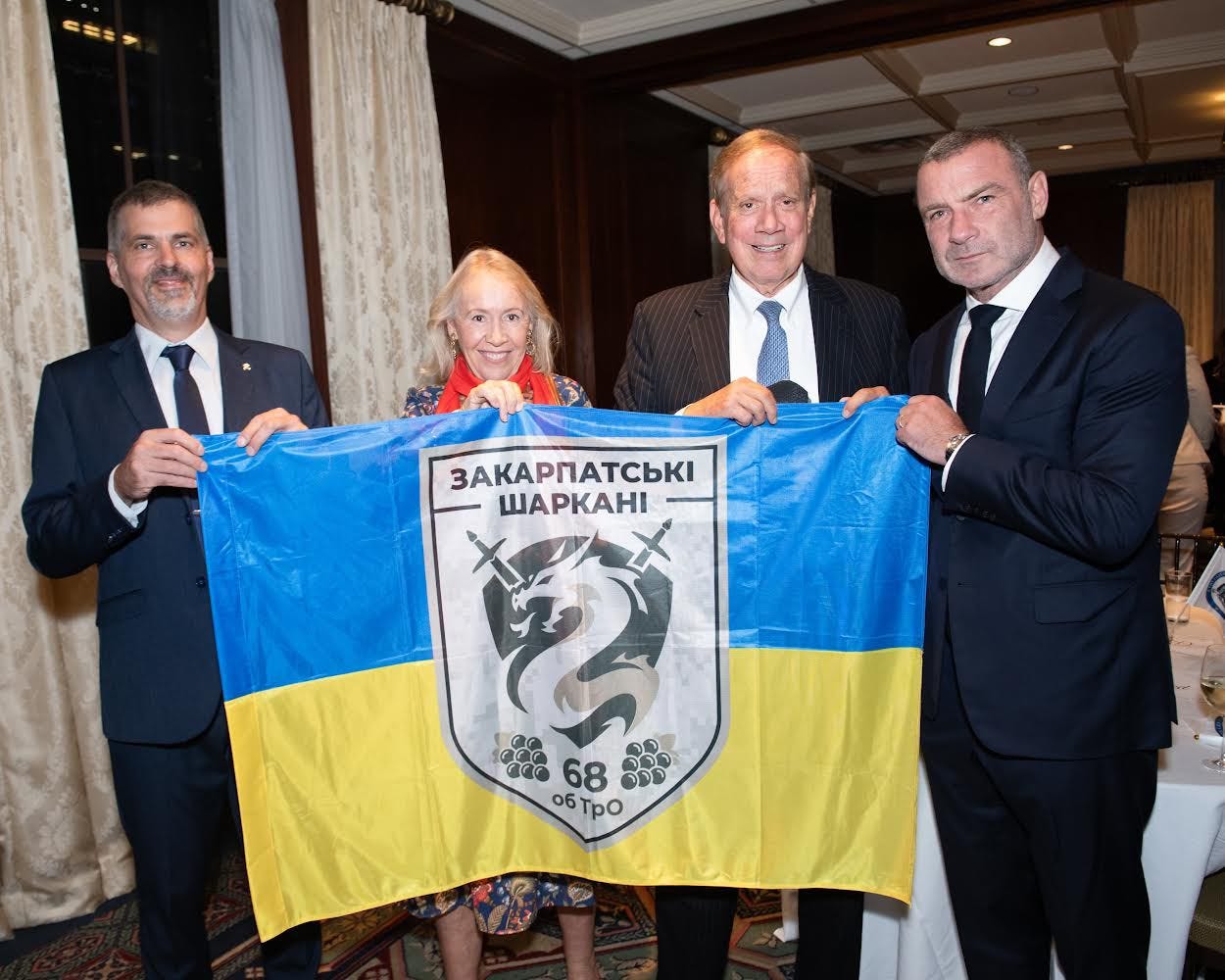Last weekend, the Carpathian Dragon Feeder Foundation achieved an important milestone by delivering 30 drones to the "Drone School" at the Uzhhorod National University in collaboration with Direct Aid for Ukraine.
The donation of EUR 99,600 came from Direct Aid for Ukraine, with logistics being handled by the Dragon Feeders. This delivery marked the maiden voyage of the recently acquired "Dragon Wagon," a former police 9-seater Mercedes troop carrier. The drones are now in the hands of the Ukrainian soldiers. Although this was the first time the Dragon Feeders handled this many drones, they have ample experience procuring and delivering smaller quantities to Ukraine. They also have connections with the Ukrainian Armed Forces to ensure the drones are delivered where they are most needed.
Who are the Dragon Feeders?
Where do they come from? What's the deal with the dragon name? How does someone become a leading Hungarian NGO helping the Ukrainian war effort and the Hungarians in the Zakarpattia region?
The Dragon Feeders is a non-profit organization that assists the Ukrainian army and the Zakarpattia region's Hungarian schools, libraries, and kindergartens. This initiative also serves as a testament to the fact that not all pro-Russian Hungarian government propaganda is effective, and it demonstrates that Hungarians are responding to the call for help from our neighboring country under attack.
It started with a couple of batteries.
About a year ago, a conversation began in a Facebook group I'm also part of. The group is for law enforcement and military nerds, and initially, nobody expected the thread to lead to something significant.
When Russia attacked Ukraine, we started following open-source intelligence (OSINT) information related to the conflict. Former military officers shared their thoughts on the news, and those of us who can speak English or Russian began translating the updates.
The discussion revolved around Shandor Fedir, the Ukrainian army's renowned "trench professor." Fedir, partly of Hungarian descent, teaches tourism at Uzhgorod National University. He gained international attention when a photo of him teaching his class online from a trench while wearing fatigues made headlines.
His unit, the 68th Battalion of the Ukrainian Territorial Defence Forces, is named "Zakarpatsky Sharkani." This name carries a message. In the Zakarpattia region of Ukraine, many ethnicities live together. The area used to be part of the Kingdom of Hungary. There are rumors that part of Putin's leverage on Orbán comes from the promise that Russia will "give back" the region to Hungary. I sincerely hope that this is a baseless rumor. Before the war, there were tensions between the governments of Hungary and Ukraine over minority rights.
The province is home to one of the oldest elite units of the Ukrainian Army, the 128th Mountain Assault Brigade, a first-echelon unit. Russian propaganda in Hungary was quick to point out that it fought at the spearhead of the Red Army when it crushed the Hungarian revolution in 1956.
The other local unit, the 68th Battalion, is part of the Territorial Defence. For American readers, think National Guard. “Sárkány” means “dragon,” but not in Ukrainian. That’s the Hungarian term for the mythical animal. The name expresses in Ukrainian that the unit was recruited partly from the ethnic Hungarians in Zakarpattia. It shows that the Russians couldn't drive a wedge between the people of Zakarpattia.
This unit needed a portable power supply (essentially a large battery) to operate their equipment in the trenches. Some group members agreed to raise some money, purchase the power supply, and transport it to Uzhgorod, a three-hour drive from Budapest, excluding wait times at the border.
Gáspár Kerekes-Nagy, Mihály Oláh, and Balázs Trautmann soon realized that they had raised more money than the price of the batteries. Communication started between Fedir and the group, and soon, the remaining money was spent on other supplies. Requests from the 68th began to come in: "Do you guys happen to have warm socks, base layers, candles, or night-vision binoculars?"
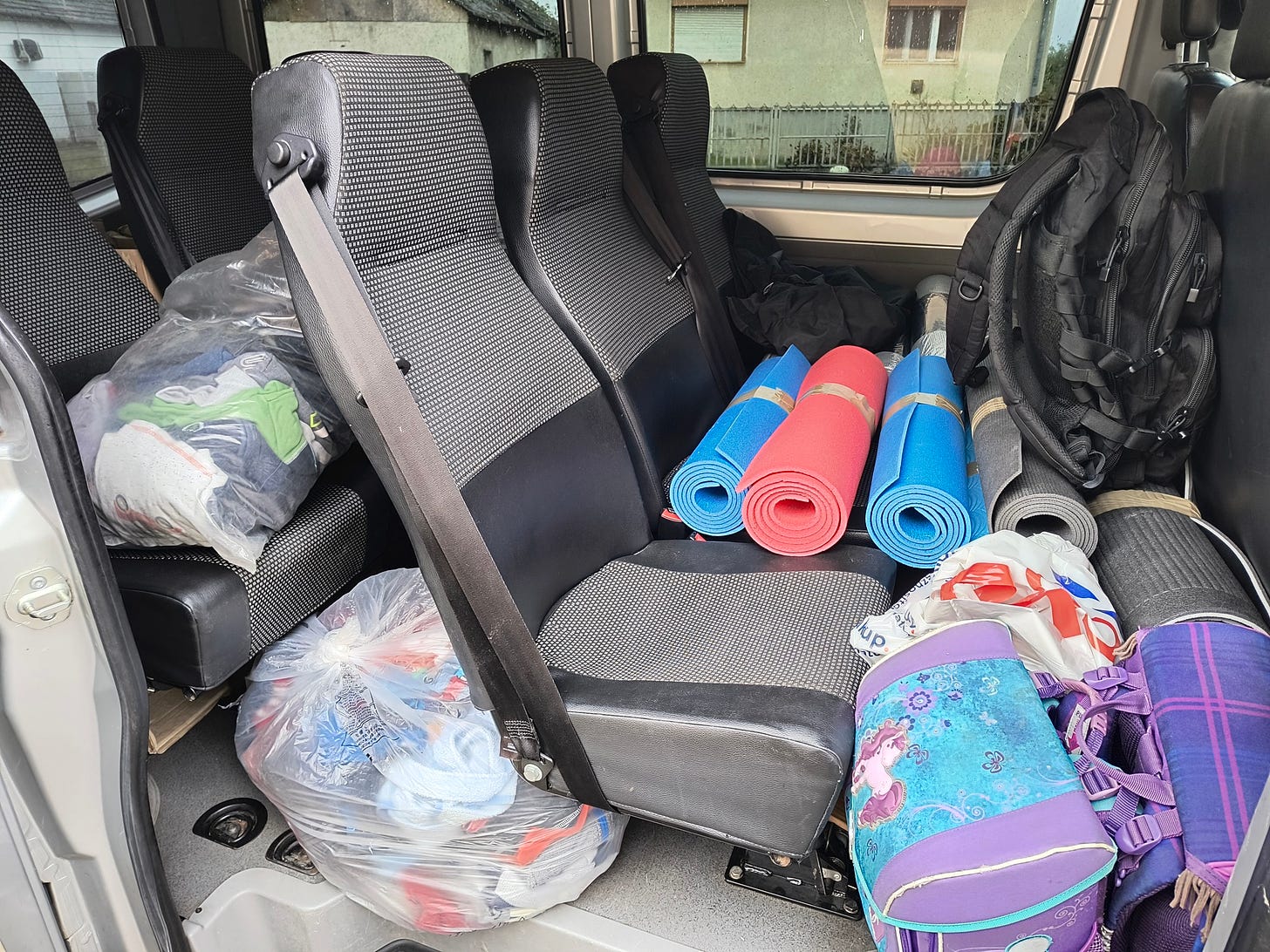
To everyone’s surprise, the answer was yes.
Facebook group members were willing to donate more money, and their networks included vendors offering a wide array of supplies. The initiative quickly outgrew the original Facebook group, and in no time, the group managed millions of Forints (tens of thousands of dollars) and began purchasing drones.
The founders (along with Gáspár’s wife Ágnes) followed some simple but effective rules:
Buy only things Fedir’s unit (and later other units and local help organizations) requested
No weapons. Only goods that Hungarian law permits to be taken to Ukraine are bought.
No politics. The group does not seek or accept connections from political parties of any country.
Absolute transparency: they post every invoice and every bank statement.
In other words, integrity.
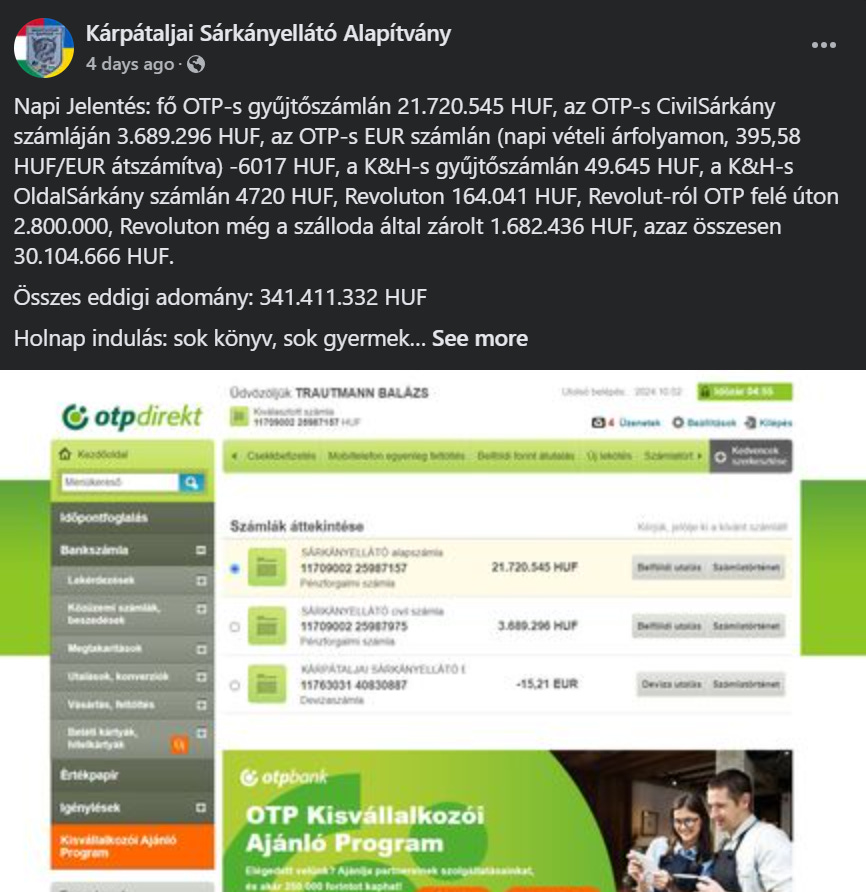
Go big or go home
This integrity attracted even more attention and donations. The next milestone was to go organized. The Carpathian Dragon Feeder Foundation was registered as a non-profit foundation. Side projects were introduced. The Foundation now collects Hungarian books for libraries and schools in Zakarpattia, children’s clothes for kindergartens, etc.
Every textbook on organizational development discusses the big problem: "Go big or go home." As someone who regularly writes about the Dragon Feeders in my Hungarian blog, I was invited to a meeting (over some beers) when they realized what they had become.
Balázs Trautmann, a military journalist, now has unparalleled experience hunting down web shops that stock the proper kinds of drones. Mihály Oláh turned out to be a talented PR guy and a builder of personal connections with Ukrainian soldiers. Gáspár Kerekes-Nagy, a Zakarpatian native and a Russian and Ukrainian speaker, can navigate the maze of official procedures in both countries with his wife.
The Dragon Feeders are still “just civilians” with a powerful drive to help others. However, over the last year, they have developed skills, procedures, and connections that have transformed them into a highly transparent and effective help organization.
This has recently led to international recognition and partnerships. In September, Balázs Trautmann was invited to the 9/11 Memorial Reception at the Pataki Center in New York to meet former New York governor George Pataki and other potential donors. Direct Aid for Ukraine also sought partnerships with the Dragon Feeders, recognizing the significance of their on-field experience.
The saga of the Dragon Feeders continues as the war in Ukraine sadly persists. However, their mission will not conclude there. With Putin influencing the Hungarian government, civilian organizations must uphold the bond between the two nations. The relief effort will pose an even greater challenge than the war effort.
You can follow the Dragon Feeders and donate here.
Thank you for reading and following the Muse!
If you like our articles, please consider becoming a paid subscriber! Right now, my Hungarian blog is the main cash cow, but I plan to allocate more resources towards this one to serve my paid subscribers with better and more frequent content.
I want the Muse to be interactive. Do you live in Hungary? Have you heard any news about Hungary? If you have questions, please ask them in the comments or email them to me directly by clicking this button:


